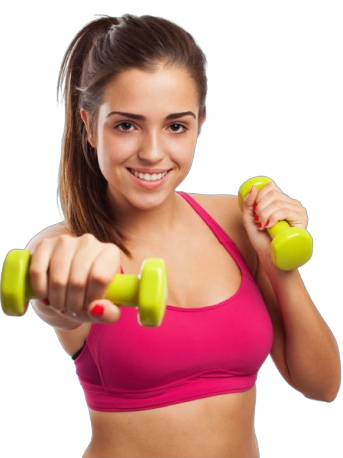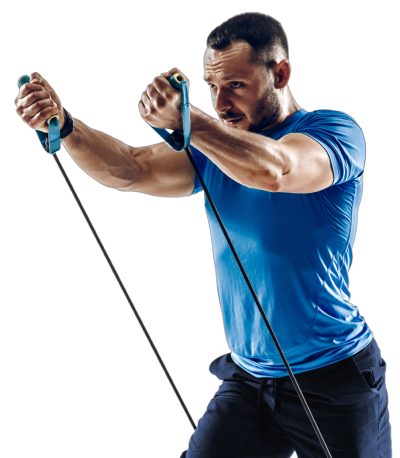Accel Gel ®
Accel Gel ®
Accel Gel is the first energy gel specifically designed to deliver rapid energy to working muscles. Accel Gel is the only energy gel that contains the patented 4:1 carb-protein ratio and a combination of three carbohydrates to maximize energy transport and uptake into muscle cells. Accel Gel guarantees instant energy when you need it. A study published in the Journal of Strength and Conditioning Research showed, compared to GU, Accel Gel:
• Increase Endurance by 13%
• Decrease Post Exercise Muscle Damage by 50%
Accel Gel Keeps Working Even After Your Workout Ends.
Gels/Box: 24
Availability:Out of stock
Couldn't load pickup availability
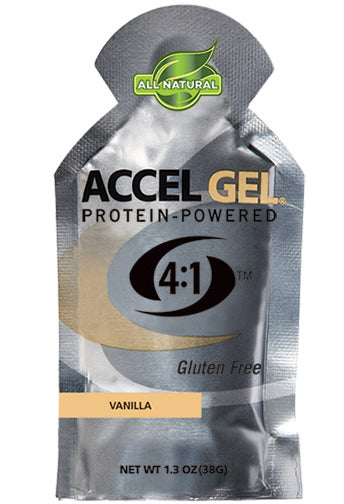
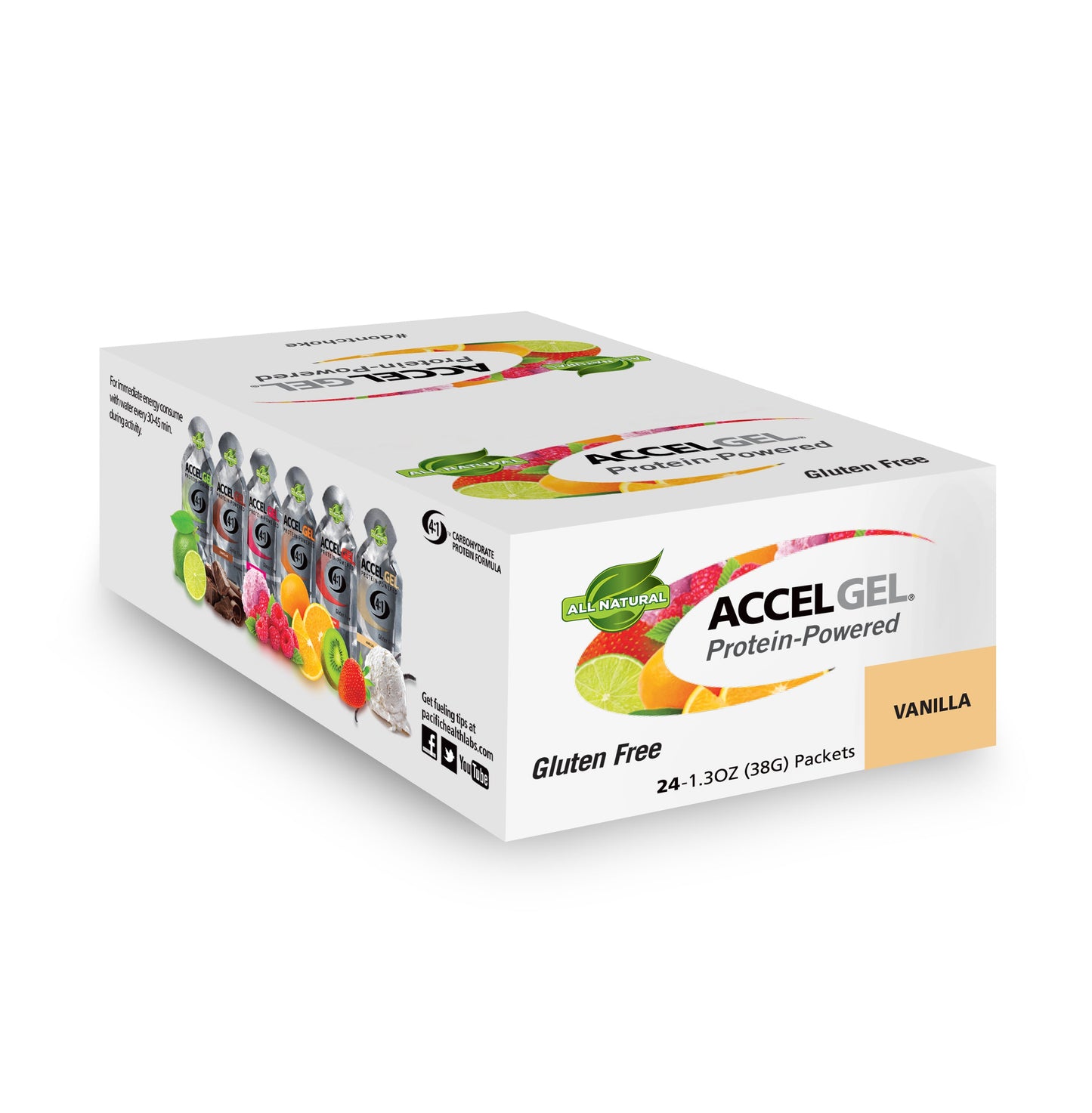
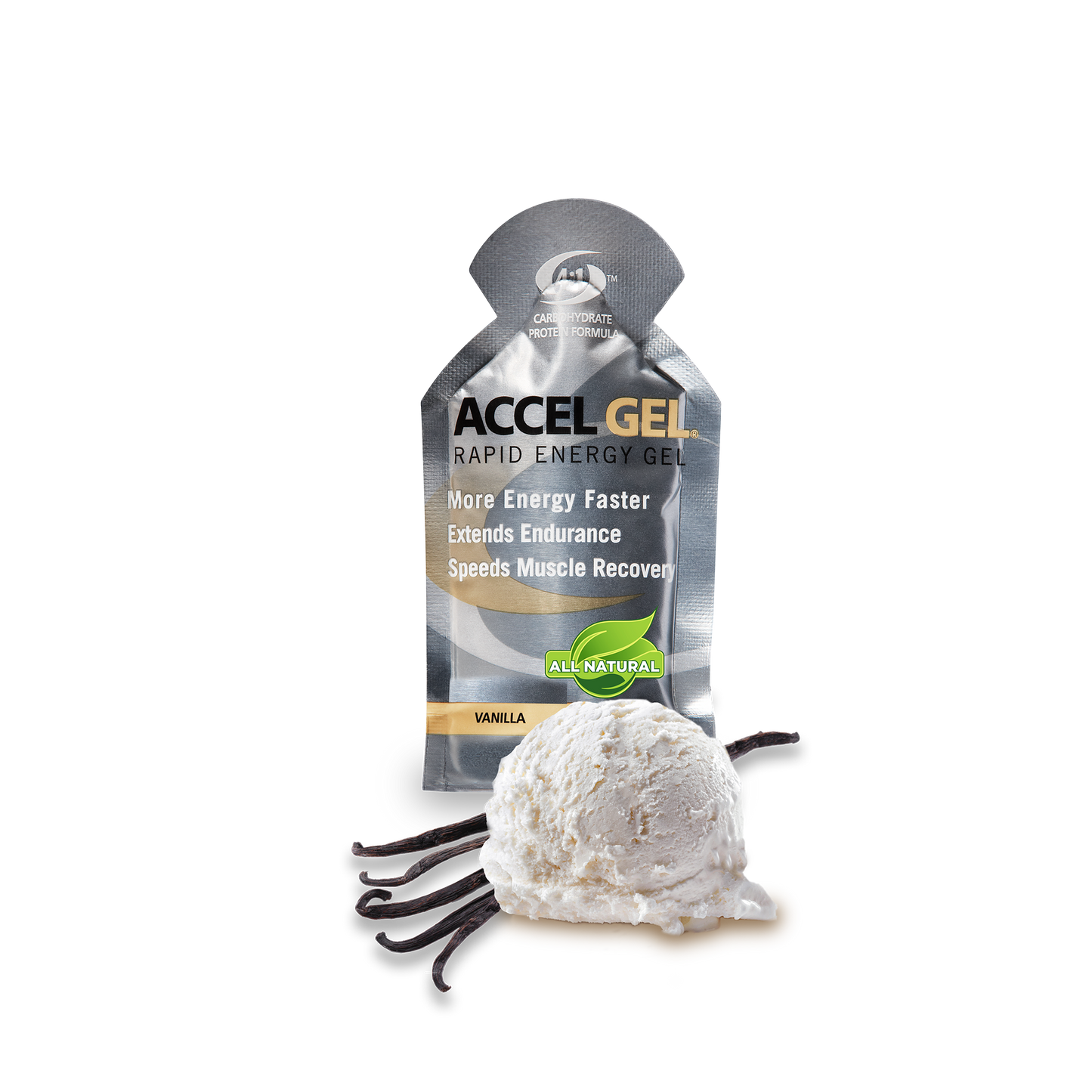
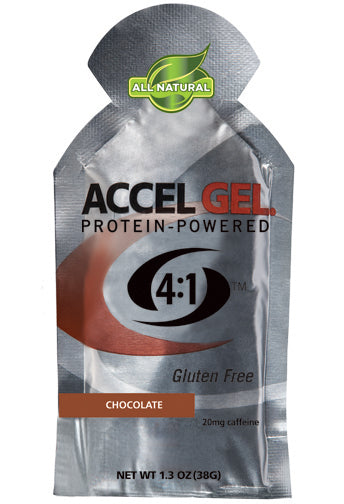
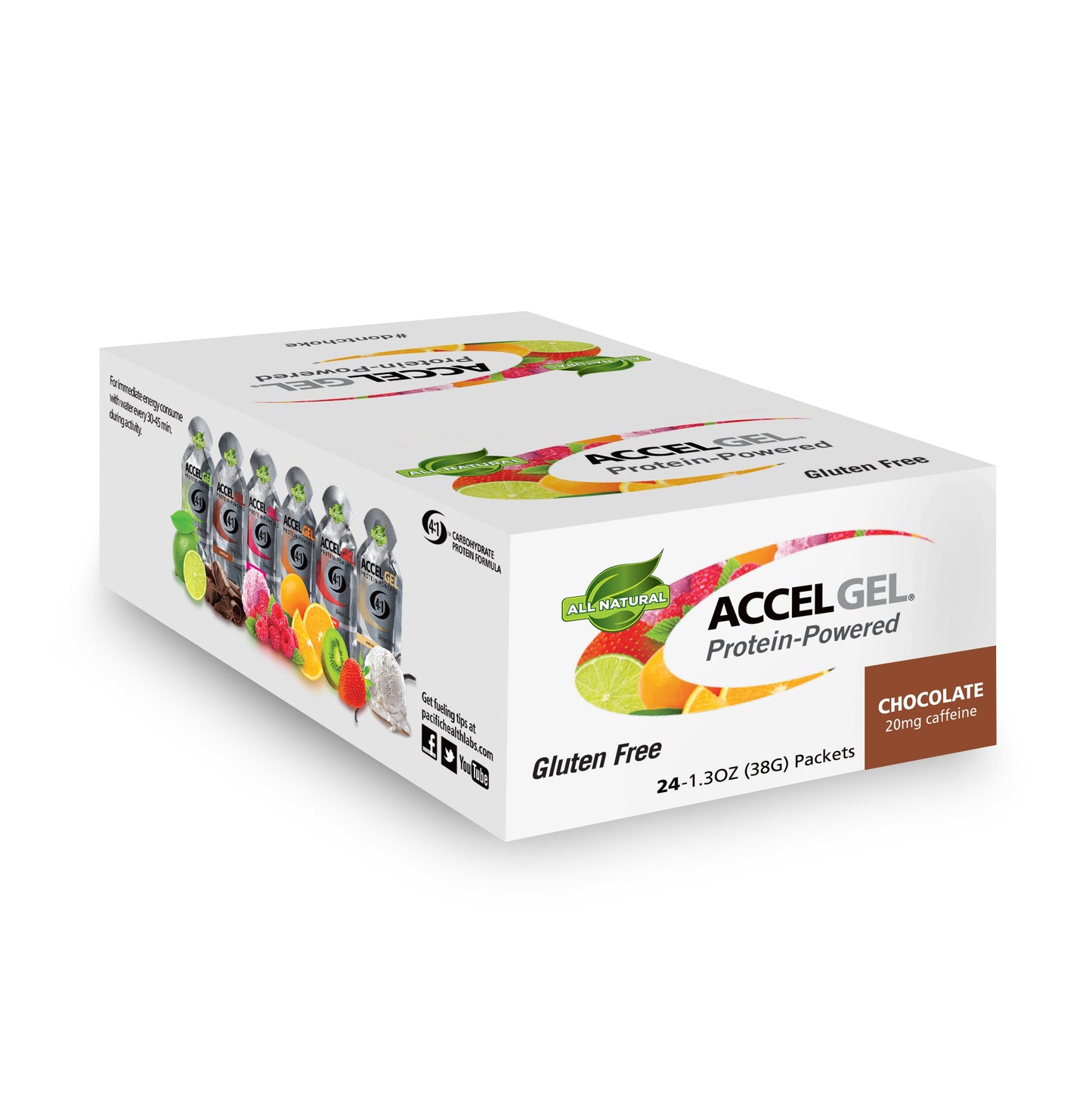
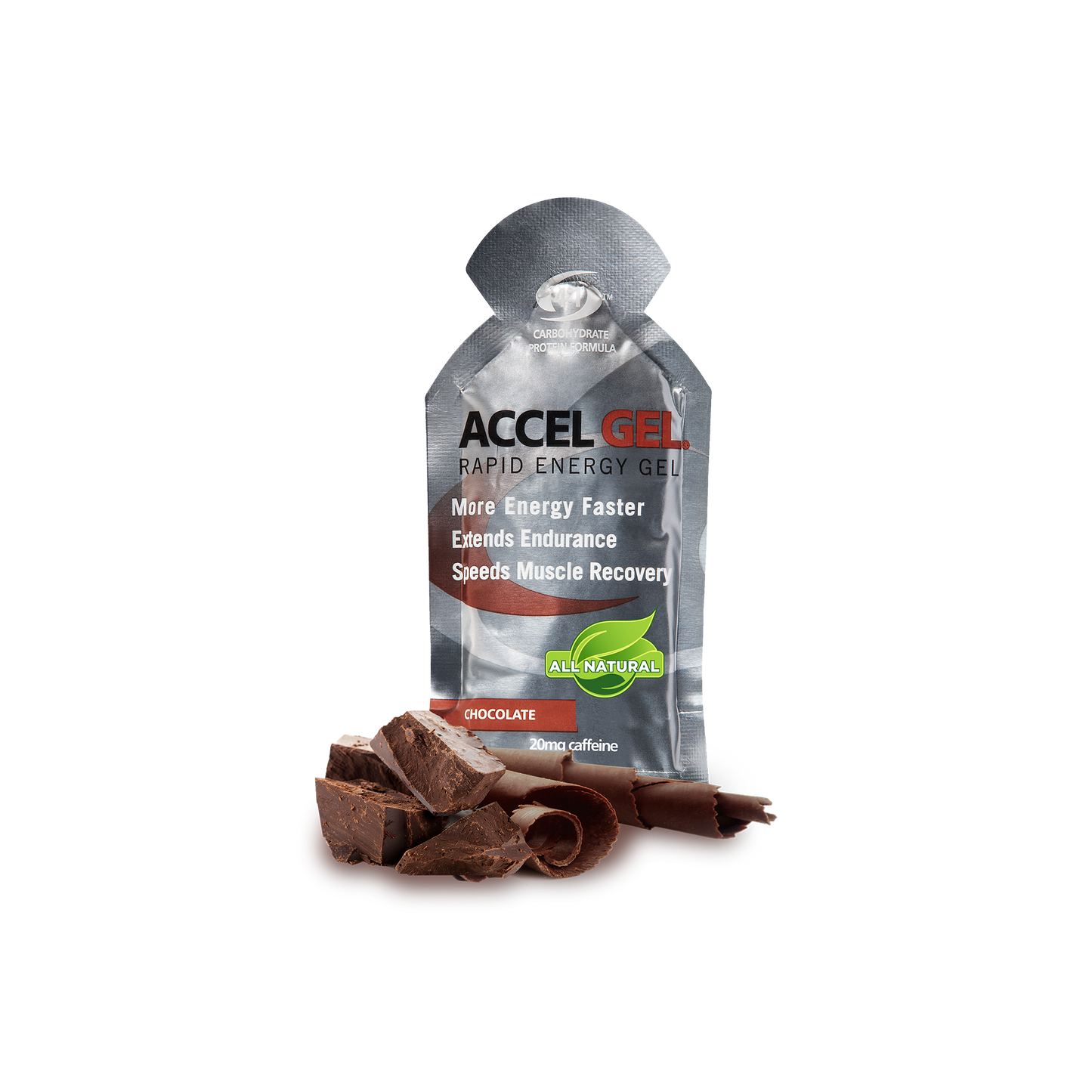
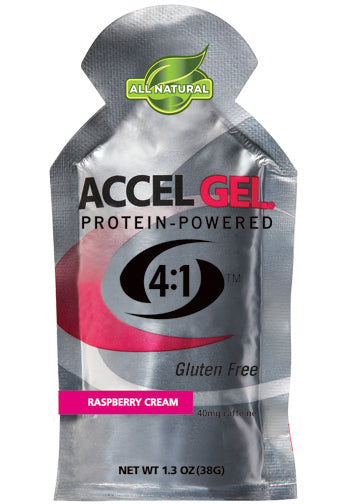
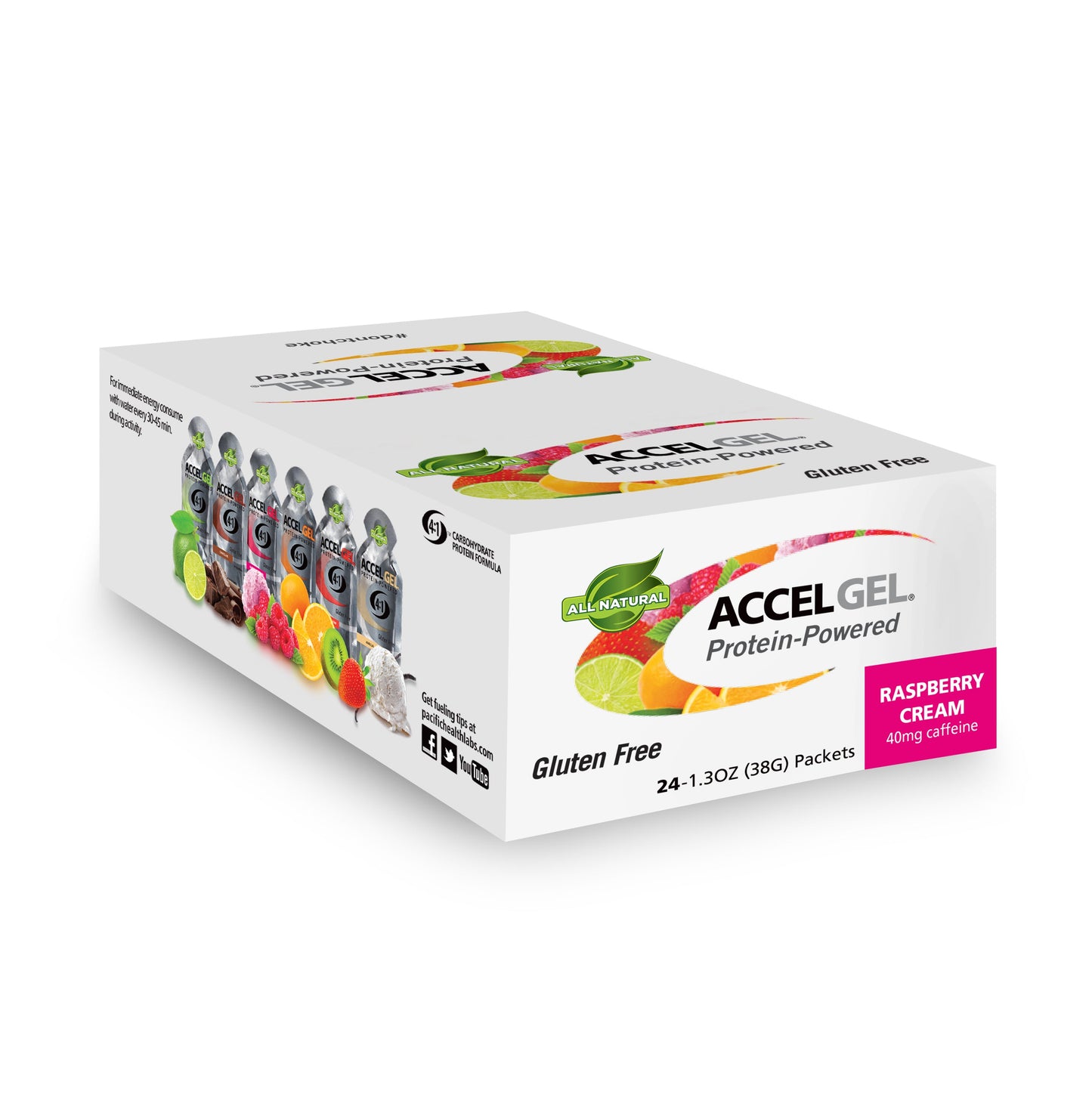
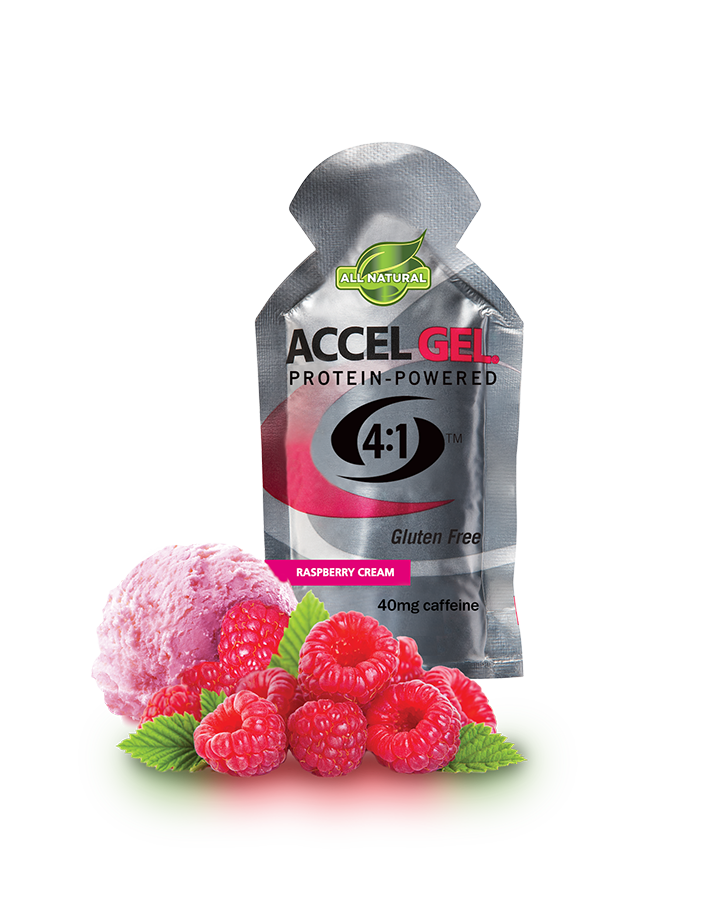
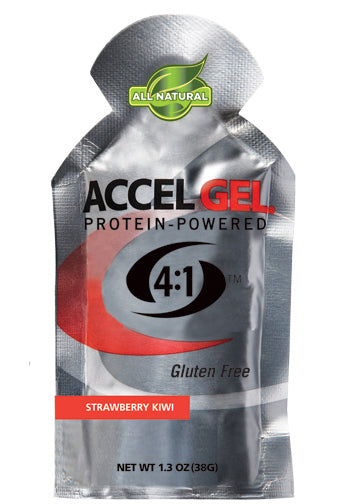
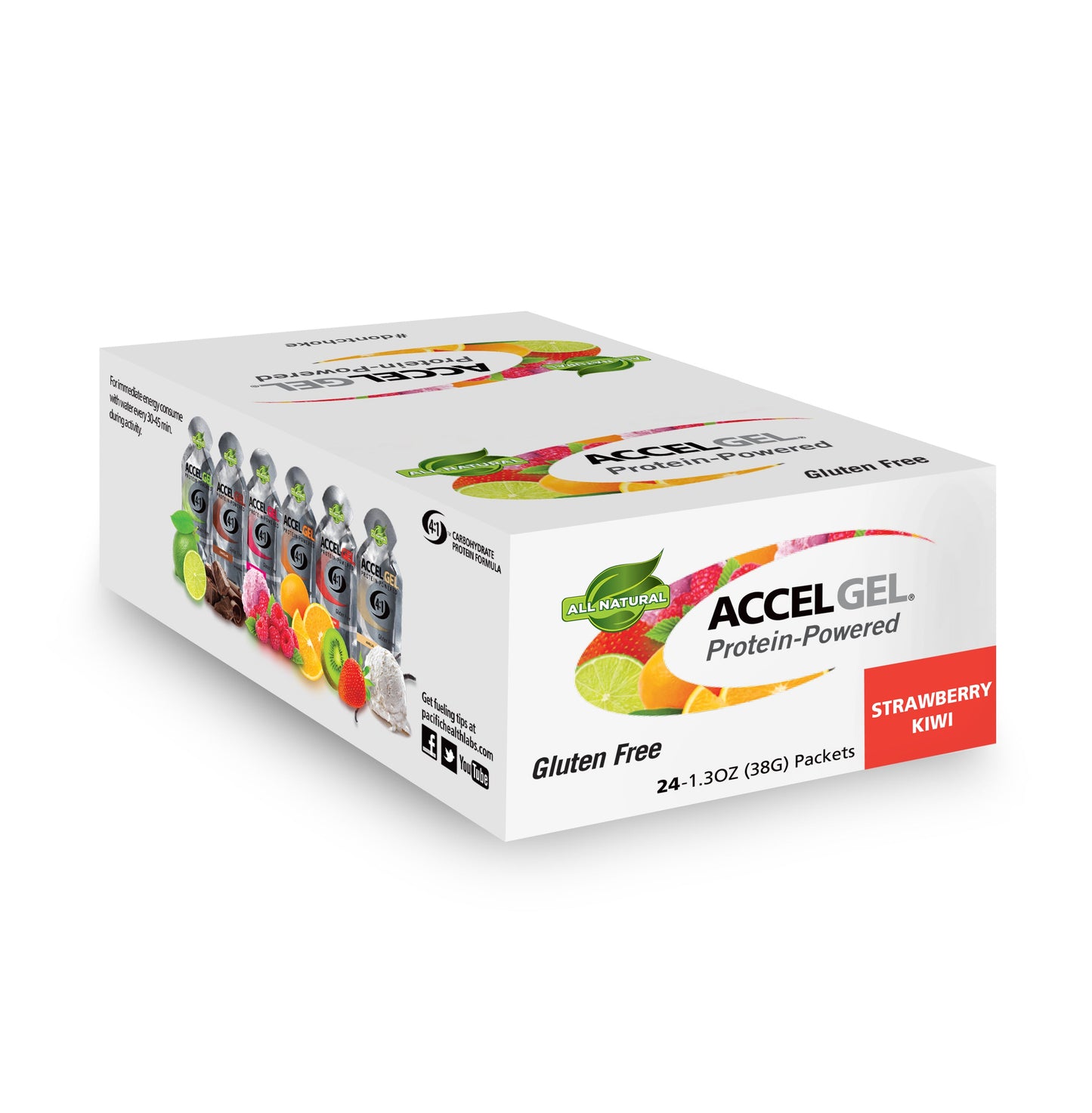
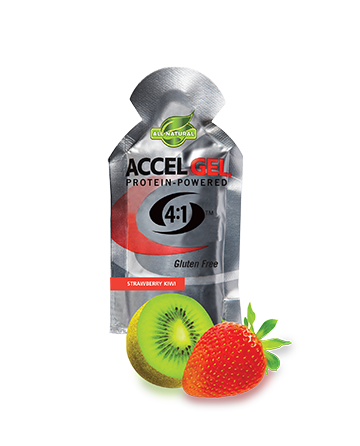
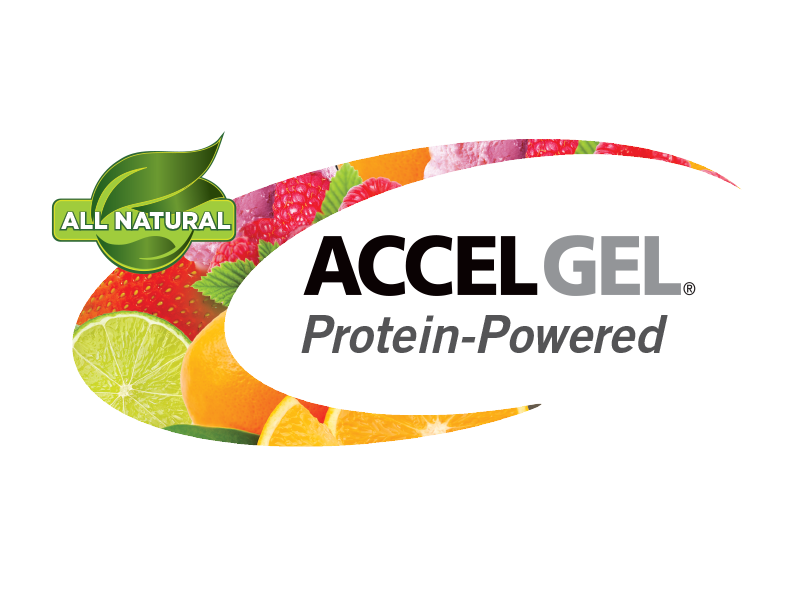





Redefining the Energy Equation
More Protein + Less Carbohydrate = More Endurance + Less Muscle Damage
Energy gels serve a practical purpose for endurance and cardio athletes. They should deliver rapidly absorbed energy that is quickly transported to working muscles. There are also practical considerations involving taste and consistency. Carbohydrate, usually in the form of easily-digestible sugars, is the only functional ingredient in almost all energy gels except Accel Gel. Building upon a broad base of proven science, Accel Gel was formulated using a 4:1 ratio of carbs to protein as well as three high-glycemic sugars for faster energy transport to muscle cells. The addition of protein provides multiple benefits in terms of improved endurance and a reduction in post-exercise muscle damage. The net result, as shown in the table below, is a superior energy gel.

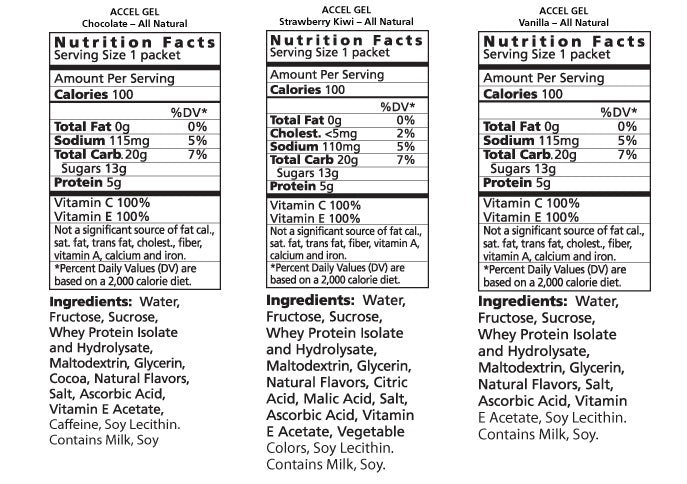
Accel Gel Research Highlights
Compared to Gu ® Accel Gel increased endurance by 13% and reduced post exercise muscle damage by 50%
Decreased ratings of perceived exertion by 19% in collegiate ski racers
Increased sprint performance and decreased 24-hour post-exercise muscle damage in swimmers
Compared to a carb only sports drink, Accel Gel decreased markers of muscle damage 24 hours later in individuals during indoor rock climbing
Studies
This study demonstrated that "Supplementation of a (carb-protein gel [AccelGel®]) provided significant improvements in cycling time to exhaustion compared to a (carb-only gel [GU Energy Gel®])." It also demonstrated that "post-exercise CPK (a biomarker of muscle damage) was not significantly elevated following the carb-protein gel trial, while it was significantly elevated following the carb-only gel trial." Thirteen recreationally competitive male (8) and female (5) cyclists completed a stationary bike ride to exhaustion while consuming either the carb-only gel with water or the carb-protein gel with water in double-blinded fashion. After each ride blood samples were taken and analyzed for CPK. Subjects performed 13% longer in the carb-protein gel trial than in the carb-only gel trial. CPK levels were significantly elevated after the carb-only gel trial, but not after the carb-protein gel trial. Responses between treatments were similar for both males and females.
This study involving slalom ski racers demonstrated that "consuming a (carb-protein gel [Accel Gel®]) and water increased training run finish success, increased the number of gates trained per session, and resulted in a lower rating of perceived exertion over a group that drank only water." Thirty ski racers, 14 to 19 years old, were matched by gender, age, and slalom points. During a 2-hour slalom training session, one of the pair ingested a carb-protein energy gel with about 150 mL of water, while the matched skier ingested 150 mL of flavored water after each training run. Skiers using Accel Gel and water missed only 13% of their gates, while skiers using just water missed 34% of their gates. Ratings of perceived exertion were 19% lower on average in the gel group.
This study showed that "[Carb-protein] gels provide significant performance advantages over [carb-only] gels, as similarly demonstrated in studies using [carb-protein] beverages." Thirteen recreationally competitive cyclists completed two timed trials to exhaustion on stationary bikes. At 15-minute intervals throughout these rides, subjects received either a carb-only gel (Gu Energy Gel®) or a carb-protein gel (Accel Gel™), which were matched for carbohydrate content. Subjects rode 13% longer when using the carb-protein gel.
This study found that "Using Accel Gels in conjunction with a hydration pack can reduce training impulse of alpine skiers." Fifteen alpine ski racers/coaches completed a study to address training effort when daily water consumption was controlled (1.5 L/session) using a CamelBak. Over a four-day period, on two consecutive days, subjects received carb-protein energy gels (Accel Gel™) throughout a 4-5-hour training session. On the other two days they received only water. Perceived effort was significantly lower on the days when skiers received Accel Gels, although they skied the same vertical distance during both trials. Training impulse equals perceived efforts x vertical distance skied. Therefore training impulse was lower in the Accel Gel trial.
This study showed that "A carbohydrate/protein energy gel improves swimming performance in collegiate swimmers." Twelve swimmers completed a workout consisting of a 15-minute warm-up, followed by a timed 200-yard freestyle, 3 sets of 8 x 100-yard freestyle (24 sprints total), and then a timed 200-yard swim. They received either a carb-protein energy gel (Accel Ge™l) or flavored water after the first 200-yard swim and again after each set of 100-yard sprints. They received 4 oz. of water with each gel. Each swimmer did the workout twice (on separate days): once with gels and once without. The swimmers' times slowed down significantly more over the course of the workout when they received only water than when they received the gels. Every timed 100-yard sprint from the 4th interval to the 24th interval was significantly faster for the carb-protein gel compared to the water. Swimmers maintained their times through 21 intervals while ingesting the carb-protein gel; only the 24th interval was slower than baseline. While ingesting water, however, swimmers slowed significantly by the 4th sprint in the first set and they continued slowing through the 24 intervals. On average, their time for the final 100-yard sprint was two seconds faster in the carb-protein gel-fueled workout than in the other workout. Blood samples were taken from the swimmers and analyzed for the concentration of creatine kinase (CK), a marker of muscle damage, before training and 24 hours after training, to determine how much muscle damage occurred during the workout. Swimmers experienced 25% less muscle damage during the Accel Gel workout.
This study examined the effect of nutrition supplementation on markers of muscle stress in individuals during indoor rock climbing. Eight experienced climbers performed three bouts of climbing with a week between each bout. During exercise, subjects consumed a carbohydrate drink, a carbohydrate protein gel or a placebo. Blood samples were collected and CK (a marker of muscle damage) was measured 24 hours after each climbing bout. The study showed that the carbohydrate protein gel was significantly more effective in reducing muscle stress compared to a carbohydrate beverage or a placebo.



















